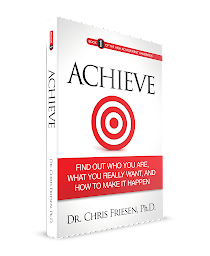Want to improve confidence?
Are you struggling with self-doubt? Do you wish your confidence was always high? Do you find your belief in yourself waxes and wanes? Maybe you’ve tried “positive affirmations”, fighting your doubting thoughts by telling yourself you’re awesome or you’ll be successful. After all, this is what many popular self-help books tell you to do.
Maybe you’ve tried this and found it didn’t work for you. What happens when what you’ve been told will work doesn’t? Your confidence may plummet even more. You start to think that there’s something wrong with you or that your confidence must be so low that even these strategies don’t work on you.
I too struggled with these issues. I used to have a constant battle with myself over not feeling as confident as I thought I should. Years ago, I tried positive affirmations and felt stupid doing them, and even dumber when I realized they didn’t work for me.
If you’ve had similar experiences, you’re not alone. Turns out, this strategy of telling yourself you are confident or should be confident rarely works. Research by Joanne Wood, Ph.D., and her colleagues has shown that repeating positive affirmations may mildly benefit people who already have high self-esteem by making them feel slightly better. But it has the opposite effect for those whose self-esteem is not so high. When those with lower self-esteem practiced positive self-statements, their moods actually worsened. On the other hand, when those with low self-esteem were allowed to think negative thoughts, their moods improved!
If you’re curious as to what the heck is going on here, the researchers theorized that when positive affirmations are not congruent with our self-perception, our minds automatically come up with all sorts of evidence of how these positive thoughts aren’t true and by doing so, our original self-perception becomes stronger.
Another common recommendation from the self-help literature and many gurus out there is that you have to think positively or believe in yourself before you take action. This idea isn’t all that bad, but the problem is thinking positively or trying to convince yourself you can do something either takes a heck of a long time or doesn’t work at all.
So if both positive self-talk and using your mind to change your beliefs about yourself aren’t the answer, what is?
The answer may surprise you. The self-help gurus had it backward. It turns out that confidence and positive thinking tends to come AFTER you take action, NOT BEFORE. Our brains aren’t easily convinced by our attempts to convince them! But our brains quickly learn from experience. So you can tell yourself until you’re blue in the face that there is no reason to feel anxious about your ability to run that series of workshops in front of hundreds of people, or start competing at a higher level within your sport. The reality is the fastest way to increase your confidence in your abilities is to DO what your doubting thoughts tell you that you can’t do. This way is also more lasting. Our brains easily forget arguments, but don’t easily forget experiences.
And guess what? Here’s another little secret. You’re still going to have self-doubt. Why? Because that’s what our brains were designed to do. It feels uncomfortable, but it’s just the way our brains are hard wired. And besides, having self-doubt is actually a good thing. Why? Because it motivates you to avoid danger and to improve. Imagine you’re preparing for the biggest competition in your life. Maybe it’s the Olympics, or maybe you’re about to pitch your startup idea on Shark Tank. Do you think it would be better if, in the weeks and months leading up to these events, you had zero self-doubts?
You may want to answer yes but the real answer is no. Having super-high self-confidence or self-belief can lead you to underestimate your competition or how hard something is going to be. This can make you complacent. Your motivation drops. Then, when you show up at the competition, you get blindsided when you realize you underestimated your competition, what you had to do, and thus you’re underprepared.
So, self-doubt is your friend. You can’t eliminate it. You need to capitalize on what it offers you. It pushes you to be better.
If you want to learn more about how you can improve your confidence, CLICK the “Subscribe to the Newsletter” box at the top of this page for more free information.
Or if you’re ready to take your game to the next level, book one-on-one coaching/consulting with me by sending me a message here.
If you want to learn more about how you can improve your confidence, CLICK the “Subscribe to the Newsletter” box at the top of this page for more free information.
Or if you’re ready to take your game to the next level, book one-on-one coaching/consulting with me by sending me a message here.



Leave a Reply
Want to join the discussion?Feel free to contribute!